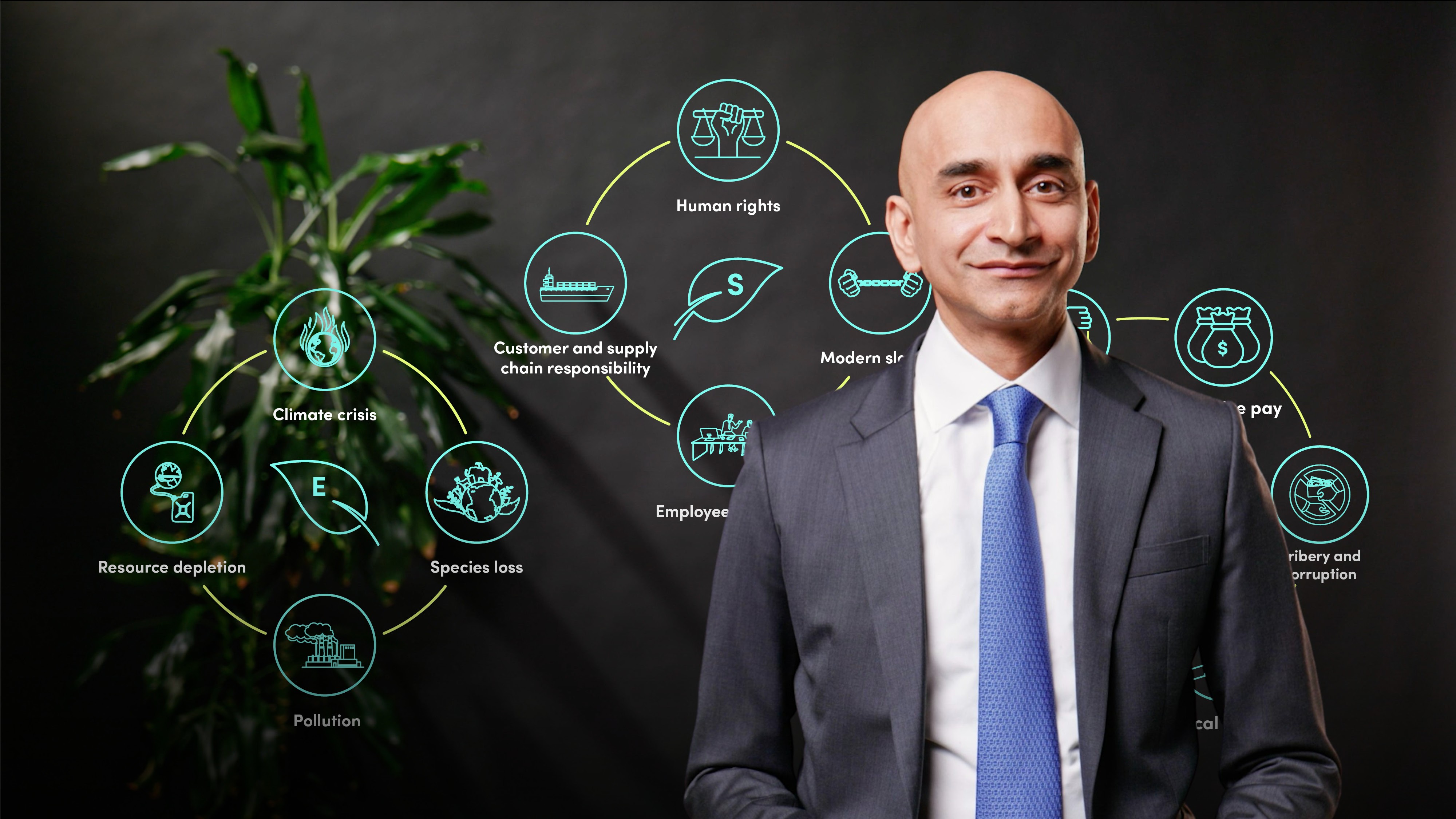
ESG Analysis, Valuation and Integration

Arun Kelshiker
20 years: Asset management and stewardship
In this video, Arun Kelshiker explains the growing importance of integrating ESG factors into investment portfolios. He outlines the importance of the research and valuation stages in the process of ESG integration at the portfolio level.

In this video, Arun Kelshiker explains the growing importance of integrating ESG factors into investment portfolios. He outlines the importance of the research and valuation stages in the process of ESG integration at the portfolio level.
Subscribe to watch
Access this and all of the content on our platform by signing up for a 7-day free trial.

ESG Analysis, Valuation and Integration
15 mins 42 secs
Key learning objectives:
Understand the importance of ESG integration
Outline the main stages of ESG integration
Overview:
Integrating Environmental, Social, and Governance (ESG) factors into investment decisions, despite data limitations, is crucial for risk management and promoting sustainability. ESG integration involves three components as per the UN’s PRI and CFA Institute framework: ESG research, security valuation considering ESG inputs, and portfolio-level integration. The research phase collects relevant ESG data, and security valuation includes ESG-driven adjustments to financial statements and valuation multiples. Portfolio-level integration includes asset allocation, risk management, and decarbonisation strategies for net-zero emissions goals. ESG integration benefits include improved stewardship practices and an institution's enhanced ESG commitment signal.
Subscribe to watch
Access this and all of the content on our platform by signing up for a 7-day free trial.
What is ESG integration?
ESG integration refers to incorporating Environmental, Social, and Governance (ESG) factors into investment decisions to enhance risk management and promote a sustainable future. It typically follows a framework that includes several stages such as ESG research, securities valuation with ESG inputs, and portfolio-level integration. ESG integration not only improves stewardship practices and signifies an institution's ESG commitment but also responds to demands from major stakeholders like governments, investors, regulators, and clients.
What is the purpose of the research stage?
ESG research involves gathering relevant ESG data from multiple sources and identifying significant financial and ESG factors impacting a company, sector, or country. This stage encompasses internal ESG securities research, creation of ESG securities watchlists where high ESG risk securities are highlighted for regular monitoring, identification of red-flag indicators, for example, red flags may be placed on companies that violate the UN Global Compact, and the use of materiality frameworks. These frameworks highlight major ESG exposures to understand risks better, often using tools like SASB Materiality Maps. For example, a technology company may have material issues around data privacy, while a consumer staples company may focus on supply-chain labour practices or product sustainability.
What is the purpose of the securities valuation stage?
Integrating ESG factors into securities valuation involves adjusting a company's financial statements, valuation multiples, and metrics based on its ESG profile.
Discount rates can be adjusted based on a company's ESG profile. ESG-focused companies may benefit from a lower cost of capital, as they are seen as more stable and lower-risk investments. This can increase their future cash flow value and company valuation.
Additional adjustments can be made to the company's balance sheet, income statement, and cash flow statement, including modifying revenue growth rates, operating costs, margins, and capital expenditures.
Valuation ratios such as Price to Earnings and Price to Book ratios are used by investors and practitioners to compare investments within a peer group. A company's ESG commitment significantly affects these ratios and its valuation.
What is the purpose of the portfolio level integration stage?
At the portfolio level, integrating ESG factors involves strategic and tactical asset allocations, risk management practices, and constructing net-zero investment portfolios. The Institutional Investor Group on Climate Change offers a framework to guide investors in decarbonising portfolios and increasing investments in climate solutions aligned with the Paris Agreement's goals. Many institutional investors are adopting this framework.
Subscribe to watch
Access this and all of the content on our platform by signing up for a 7-day free trial.

Arun Kelshiker
There are no available Videos from "Arun Kelshiker"


























